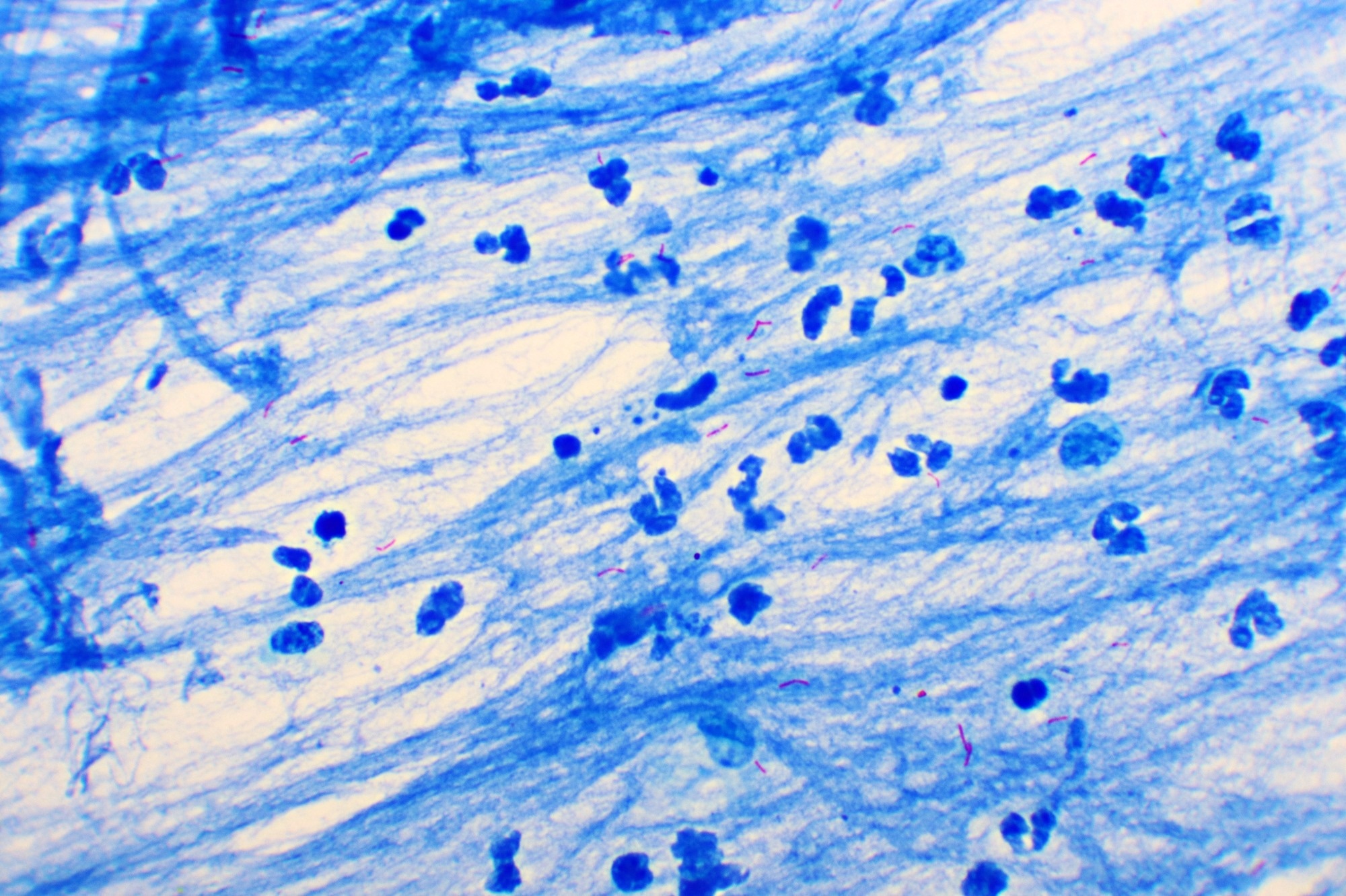Tuberculosis continues to be a global health concern with the emergence of drug-resistant strains of Mycobacterium tuberculosis, especially due to resistance to the antibiotic isoniazid, which has hitherto been the frontline treatment for the disease.
In a recent study published in Nature Communications, a team of researchers from New Zealand and Australia explored the genetic vulnerabilities of isoniazid-resistant strains of M. tuberculosis.
Specifically, they explored how mutations in the katG gene, which is essential for isoniazid activation, would impact the bacterium's physiological pathways. The study used a clustered regularly interspaced short palindromic repeats (CRISPR)-based approach to identify the essential genes and pathways that could be targeted to weaken isoniazid-resistant strains of M. tuberculosis.
 Study: Whole genome CRISPRi screening identifies druggable vulnerabilities in an isoniazid resistant strain of Mycobacterium tuberculosis. Image Credit: Jarun Ontakrai/Shutterstock.com
Study: Whole genome CRISPRi screening identifies druggable vulnerabilities in an isoniazid resistant strain of Mycobacterium tuberculosis. Image Credit: Jarun Ontakrai/Shutterstock.com
Background
The ongoing challenge of drug-resistant tuberculosis has heightened the need for alternative therapeutic strategies. Isoniazid-resistant M. tuberculosis strains, which often carry mutations in the katG gene, compromise the efficacy of isoniazid, which has been central to tuberculosis treatment.
The function of the katG catalase-peroxidase enzyme is to activate isoniazid. Therefore, mutations that disrupt this activation can often lead to drug resistance.
However, while standard treatments can fail against these strains, research indicates that drug resistance also alters bacterial physiology and critical pathways, potentially exposing vulnerabilities in these resistant strains that could be exploited therapeutically.
However, the complex interactions among these pathways in resistant strains remain poorly understood. Furthermore, current approaches lack a comprehensive, genome-wide analysis of the impact of drug resistance on the functional networks of the bacterium.
About the Study
In the present study, the researchers aimed to understand the impact of drug-resistance-conferring mutations on the physiological pathways of the tuberculosis bacterium by systematically mapping the genetic vulnerabilities in isoniazid-resistant M. tuberculosis using a CRISPR-based method.
The researchers used a whole-genome CRISPR interference (CRISPRi) screening approach to investigate vulnerabilities in isoniazid-resistant M. tuberculosis.
This approach employs a CRISPRi library that targets approximately 96% of the protein-coding genes in M. tuberculosis, allowing for controlled gene repression in both drug-susceptible and isoniazid-resistant strains. The researchers developed an isoniazid-resistant-katG strain by introducing a specific mutation in the katG gene, which was utilized to model isoniazid resistance.
The study used multiple CRISPRi screening conditions with varying levels of anhydrotetracycline to modulate the degree of gene repression. Bacterial cultures were prepared in tissue culture flasks with the CRISPRi library and grown in selective media under these anhydrotetracycline conditions to induce different levels of gene knockdown.
The samples were then collected at different intervals, such as 5, 10, and 14 days, to monitor growth and gene depletion across time points and varying anhydrotetracycline levels.
Furthermore, gene essentiality was assessed by tracking the depletion of the guide ribonucleic acid (gRNAs) targeting each gene.
A gene was considered essential if two or more gRNAs showed over twice the reduction in abundance compared to non-induced controls. Therefore, genes with increased depletion in the isoniazid-resistant-katG strain were considered more vulnerable in the drug-resistant background.
Additionally, pathways containing a high proportion of such genes were identified through pathway analysis, and the researchers focused on the ones that were significantly different between the isoniazid-resistant-katG and drug-susceptible-parent strains.
Major Findings
The findings showed that specific genetic pathways in isoniazid-resistant M. tuberculosis are highly susceptible to targeted inhibition.
Notably, the genes involved in nucleotide metabolism, protein synthesis, amino acid metabolism, and respiration displayed increased vulnerability in the isoniazid-resistant-katG strain compared to the drug-susceptible-parent strain.
These findings suggested that drug resistance driven by katG mutations altered bacterial physiology and inhibited certain pathways critical for the bacterium's survival. The pathway analysis also revealed that the pathways associated with nucleotide metabolism and protein synthesis are among the most affected.
Many genes in these pathways, including those responsible for ribosomal functions, were affected only in the isoniazid-resistant-katG strain, indicating that they could be potential targets for treatment strategies.
Additionally, genes related to oxidative stress response and iron storage, such as the iron-dependent regulator or ideR gene, also showed heightened vulnerability, possibly due to an impaired ability to manage oxidative damage in the isoniazid-resistant-katG background.
Furthermore, the CRISPRi screening also identified several genes as “synthetic lethal” for the isoniazid-resistant-katG strain. These genes were essential in the resistant strain but not in the drug-susceptible parent, suggesting that their inhibition could selectively weaken the drug-resistant bacterial strains.
Conclusions
Overall, these findings demonstrated that isoniazid resistance introduces critical weaknesses in M. tuberculosis that could be leveraged in developing new treatments.
By targeting genes and pathways with increased vulnerability in isoniazid-resistant strains, it may be possible to design therapies that are tailored and effective even when standard antibiotics fail.
Journal reference:
-
Wang, X., Jowsey, W. J., Cheung, C., Smart, C. J., Klaus, H. R., Seeto, N. E., Waller, N. J., Chrisp, M. T., Peterson, A. L., Ofori-Anyinam, B., Strong, E., Nijagal, B., West, N. P., Yang, J. H., Fineran, P. C., Cook, G. M., Jackson, S. A., & McNeil, M. B. (2024). Whole genome CRISPRi screening identifies druggable vulnerabilities in an isoniazid resistant strain of Mycobacterium tuberculosis. Nature Communications, 15(1), 9791. doi:10.1038/s4146702454072w. https://www.nature.com/articles/s41467-024-54072-w